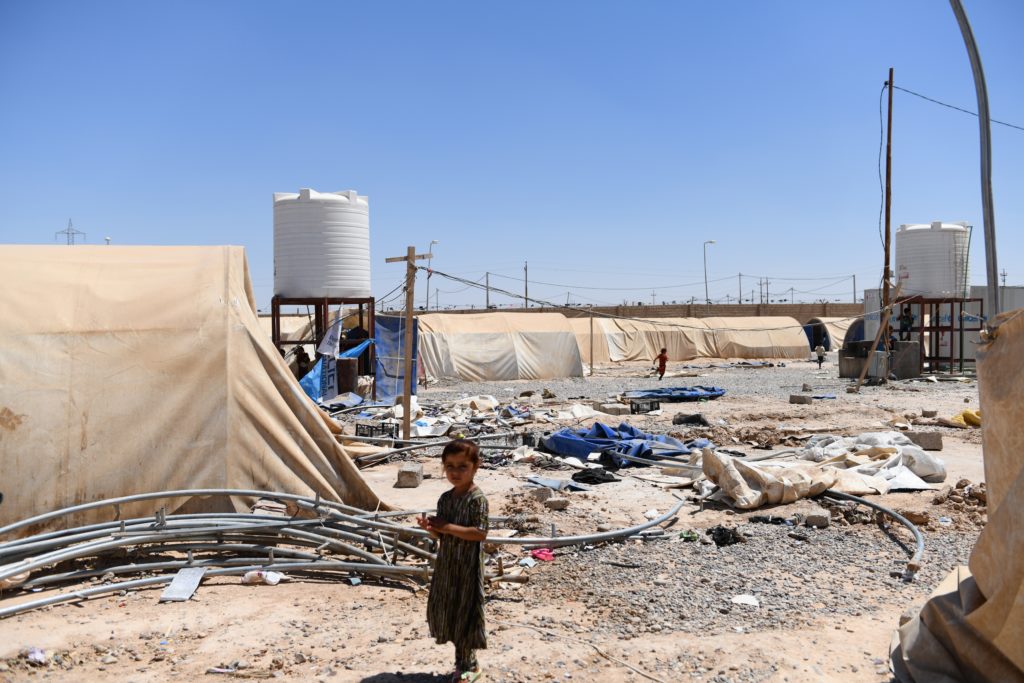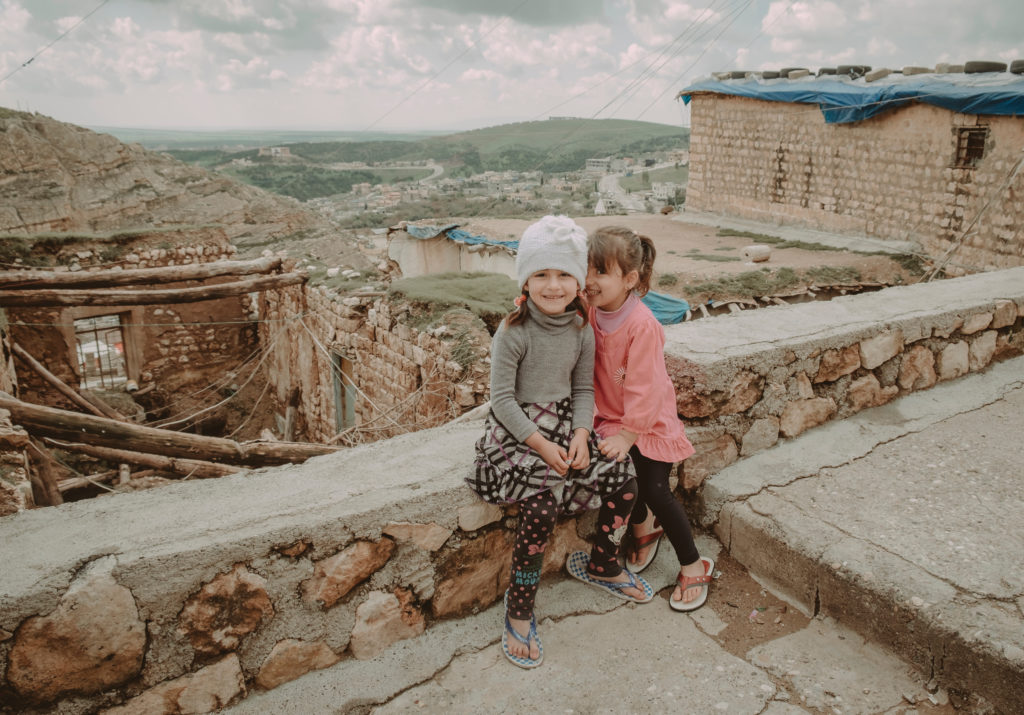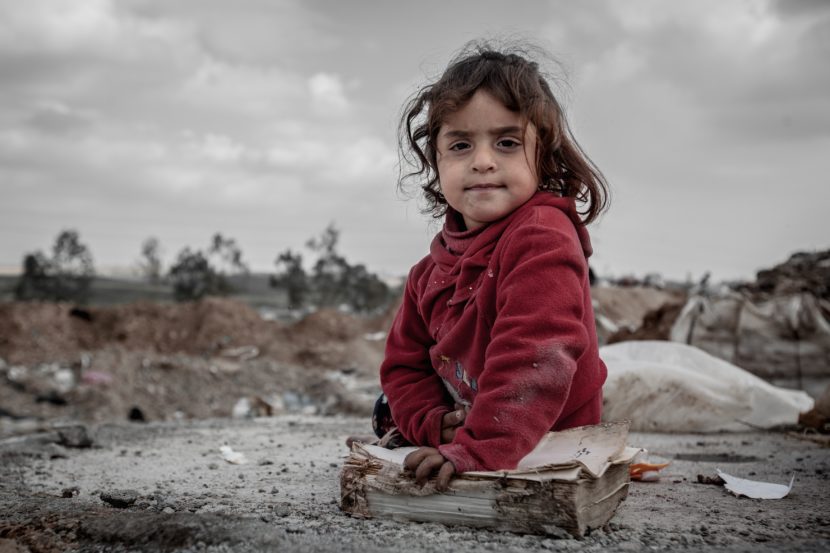The fundamental rights of girls in Iraq are violated by a variety of barriers, some of which explicitly contradict the UN Convention on the Rights of the Child. Numerous girls who only want to exercise their right to education now face additional challenges as a result of the ISIS invasion of Iraq. Despite the fact that local government officials and international humanitarian groups have worked together to guarantee Iraqi girls’ safe access to their educational rights, various obstacles still stand in the way of achieving this important objective.
The right to education for girls in Iraq
Prior to the 1990s, the Iraqi educational system was historically regarded as one of the best in the Middle East for being based on the principles of access and equality (Iraqi Thoughts, 2023). However, as a result of a series of terrible events, including regional wars, economic sanctions, the politicisation of the educational system, a lack of financial resources, the fall of Saddam Hussein’s regime, and the ISIS invasion of Iraq, illiteracy rates significantly increased. This saw the number of girls attending school decrease significantly over time (Wikipedia, n.d.).
Due to the tragic events outlined above, Iraq’s lack of education for girls and women has been further exacerbated by gender disparities. Considering these gender disparities, school enrollments for boys and girls are just slightly different. According to the figures, five million boys attended school in 2015–2016, compared to 4.2 million girls.
In addition, 3.6 percent of boys dropped out of lower secondary school, compared to 4.7 percent of girls. Furthermore, girls aged 12 and older have an illiteracy rate that is more than twice that of boys. In contrast to boys, who have an illiteracy rate of 13 percent, girls have a rate of 28.2 percent (Giannopoulos, 2018).
This is in direct violation of the UN goals which prioritises children’s rights. UNCRC Articles 28 and 29 concentrate on a child’s right to education and the significance of state parties’ duties in adopting all relevant steps to maintain this right. Therefore, when the right to education is implemented, discrimination against children should not occur. As stated in Article 2 of UNCRC, this includes both direct and indirect discrimination (UNCRC, 1989).
How did ISIS devastate the education system in Iraq?
Between 2014 and 2017, the Islamic State of Iraq seized control of Iraq, and as a result of this dominance, the education system was pushed back decades. In addition to dismantling the formal education system that was previously in place, the Islamic State of Iraq also established its own alternative system to support its ideology before reopening the schools to promote dogma over academic learning (Gadais, 2022).
Additionally, ISIS turned schools into military outposts from which it launched mortars and rocket-propelled grenades at Iraqi soldiers in the area. According to a UNICEF study in June 2017, between January 2014 and May 2017, 138 attacks on schools were recorded.
They conducted their own schools with a strong emphasis on religion and arm training while sending government teachers home. Even elementary school math had a strong military emphasis as students were taught to count by showing them bullets (Arraf, 2017).
Sequentially, the education system was completely devastated because schools had witnessed the bloodiest battles, were surrounded by a path of destruction and the bodies of dead soldiers, and all of their electric systems lacked any kind of water or sanitation (Ibarra, 2020). Due to these factors, parents decide not to enroll their children in school out of concern for what might happen to them on the way to school (Ibarra, 2020).
Education barriers for girls in Iraq after ISIS

The poverty rate skyrocketed as a consequence of the ISIS invasion of Iraq, which caused an ongoing, annual economic decrease estimated at 0.6 degrees (UAB Organisation, n.d.). Families were unable to send their daughters to school as a result of this inadequateness. According to a survey conducted by the Women for Women organisation, 1,513 Iraqi women reported that 76.2% of their families banned their daughters from attending school due to financial restrictions (Bahjat, 2014).
The second major obstacle, safety, is related to both military conflicts and civil crimes, including kidnapping and rape (Bahjat, 2014). Explosions by the military were always aimed at schools and children. Additionally, there are added dangers of being abducted or sexually attacked on the way to school.
Due to the risk of sexual assault on the route to school, more than half of the parents in NP’s community said they forbade their daughters from completing middle or high school (Non-violent Peace Force Organisation, 2022). In addition to these occurrences, the legacy of the war against ISIS has created psychological wounds that discourage girls from continuing their education (Global Coalition, 2018).
Challenges in Iraq’s education infrastructure and document barriers
From an infrastructure perspective, the inadequate number of schools, a lack of faculty, and inadequate educational facilities represent another significant hurdle. Nearly 2751 seriously damaged schools need reconstruction; 1000 schools are made of mud, straw, or tents; and 2400 schools have been looted (Wikipedia, 2023).
In addition, there are a number of fundamental necessities that schools lack, including scientific laboratories, libraries, an up-to-date curriculum, teacher training, food sources, latrines, and clean water shortages in about 70% of schools (Wikipedia, 2023). There are several recorded complaints regarding inadequate facilities, and students suffer as a result of this deficiency (Bahjat, 2014).
A further challenge preventing girls from attending their schools is a shortage of identity cards. According to estimates, at least 80,000 households have members who are lacking at least one document (Boghani, 2019). Birth certificates are also estimated to be missing for at least 45,000 children, including girls, living in decampment camps due to the ISIS invasion (Boghani, 2019).
Furthermore, there are identification cards produced by ISIS that are not recognised by the Iraqi government (Jaafari, 2023). Notably, birth certificates and parent identification cards are important entrance criteria in Iraqi schools. In the event that they lose one of these papers or are issued by ISIS, the girls will be rejected from registering at school by the Iraqi education system.
Local and international efforts to overcome barriers to education in Iraq
In compliance with international law and Iraqi legislation, the Iraqi government aims to remove obstacles and establish an atmosphere that supports girls’ right to education. The government promotes girls’ safety and access to education by maintaining a protective presence and conducting patrols in the vicinity of schools and on public streets (Non-violent Peace Force, 2022).
Humanitarian organizations and international celebrities have also taken an effective role in addressing the problem of girls’ education in Iraq. They do this by supporting local efforts that the local government is already making to lower the Iraqi barriers to education as well as supporting national measures that are meant to expand and complement those local efforts.
Although there have been national and international efforts to remove barriers to education, there remains a wide range of recommendations for the future, including expanding alternative education programmes, increasing the number of schools and teaching hours, hiring more teachers, and providing accessible primary and secondary education (No Lost Generation, 2022). Initiatives may also concentrate on creating awareness and developing and implementing strategies (Bahjat, 2014).

Humanium has, since its foundation, pushed for the recognition and protection of girls’ rights and a world where no child is denied their basic needs. Humanium is actively trying to raise awareness about the need to put an end to girls’ rights abuses in order to ensure that they have a safer and brighter future. Your help makes a difference and as you assist us in making the world a better place for children, please consider donating, sponsoring a child, or working with us as a volunteer.
Written by Malak Rababa
Internally proofread by Aditi Partha
References:
Arraf, J. (2017, October 9). After three years under ISIS, Mosul’s children go back to school. Retrieved from NPR at https://www.npr.org/sections/parallels/2017/10/09/556532909/, accessed on August 15, 2023.
Bahjat, S. (2014, October 8). Iraqi girls education: challenges and opportunities. Retrieved from MEJFM at http://www.mejfm.com/october%202014/IraqGirls, accessed on August 15, 2023.
Boghani, P. (2019, November 12). How Conflict in Iraq Has Made Women and Girls More Vulnerable. Retrieved from PBS at https://www.pbs.org/wgbh/frontline/article/how-conflict-in-Iraq-has, accessed on August 15, 2023.
Gadais, T. (2022, March 10). Education Under the Islamic State of Iraq and Syria: A Content Analysis of the Physical Education Curriculum Retrieved from Frontiersin at https://www.frontiersin.org/articles/10.3389/feduc.2022.854413, accessed on August 15, 2023.
Giannopoulos, G. (2018, November 5). Top 10 Facts About Girls’ Education in Iraq Retrieved from Borgenproject at https://borgenproject.org/top-10-facts-about-girls education, accessed on August 16, 2023.
Global Coalition to Protect Education from Attack (2018, May 11). Education Under Attack (2018): Iraq Retrieved from Refworld at https://www.refworld.org/docid/5be9430d4.html, accessed on August 15, 2023.
Ibarra, D. (2020, April). How ISIS changed Iraqi schools. Retrieved from Visura at https://visura.co/ibarra/stories/how-isis-changed-iraqi-schools, accessed on August 16, 2023.
Iraqi Thoughts (2023, June 11) AMIDST CONFLICT AND CONSERVATISM: IRAQI WOMEN’S ACCESS TO EDUCATION AFTER 2003 Retrieved from Iraqi Thoughts at https://1001iraqithoughts.com/2023/06/11/amidst-conflict-and, accessed on August 15, 2023.
Jaafari, S. (2023, April 10). Four years later, the legacy of ISIS prevents these Iraqi children from going to school. Retrieved from The World at https://theworld.org/stories/2023-04-10/4-years-later-, accessed on August 16, 2023.
Non-violent peace force organisation. (2022, December 1). Providing Safe Access to Girls’ Education in Ba’aj, Iraq Retrieved from Nonviolent Peaceforce at https://nonviolentpeaceforce.org/providing-safe-access-to-, accessed on August 16, 2023.
UNICEF. (n.d.). The right to an education is one of the most important principles in becoming a rights-respecting school. Retrieved from UNICEF at https://www.unicef.org.uk/rights-respecting-schools/the-rrsa/the-, accessed on August 16, 2023.
UAB Online Organisation (n.d.) The Iraqi economy went from bad to worse. Retrieved from UAB Online at https://uabonline.org/ar/%D8%A8%D9%88%D8%AC%D9, accessed on August 15, 2023.
Wikipedia. (n.d.). Education in Iraq Retrieved from Wikipedia at https://en.m.wikipedia.org/wiki/Education_in_Iraq, accessed on August 15, 2023.
Wikipedia. (2023). Education in Iraq Retrieved from Wikipedia at https://en.m.wikipedia.org/wiki/Education_in_Iraq, accessed August 15, 2023.


